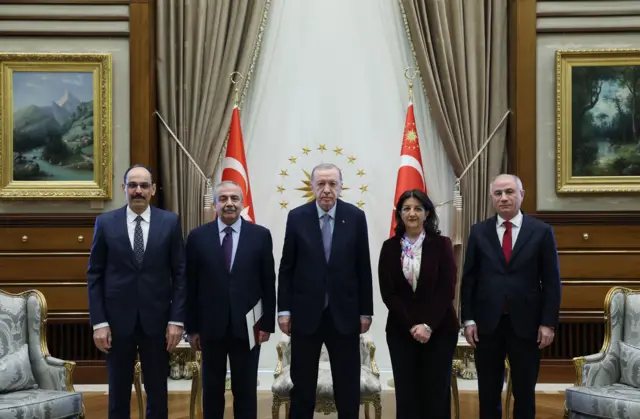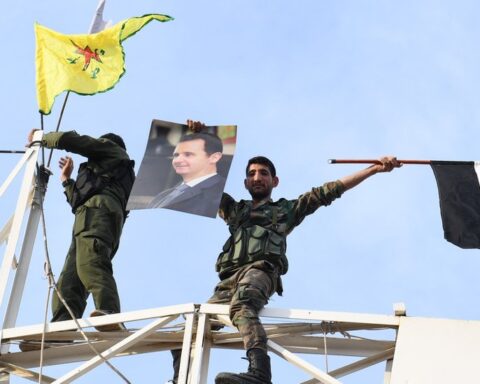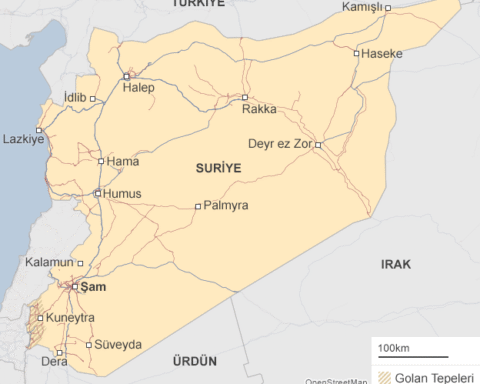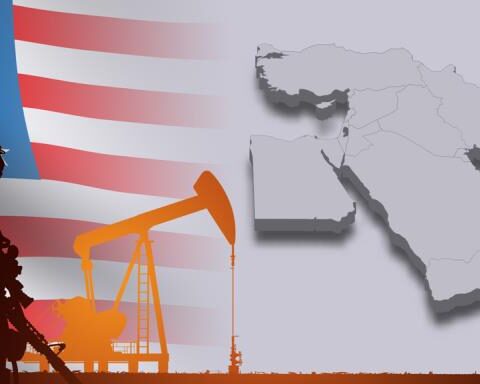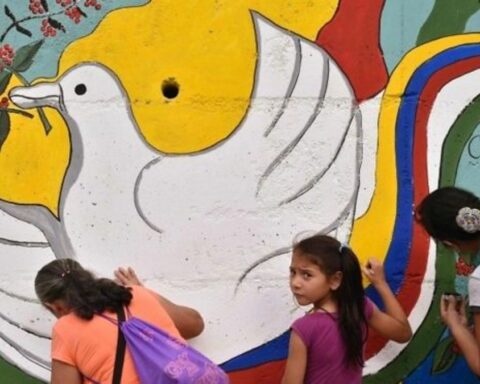After decades of suffering, losses, and social polarization, Türkiye is once again in pursuit of a “conflict-free future.” The “Terror-Free Türkiye” project, launched under the leadership of the state and politics, at first glance appears to be a goal on which everyone can agree. As such, there was strong belief that the process would progress smoothly. From the perspective of decision-makers, it is clear that there has been no change in their stance. In particular, President Erdoğan and Devlet Bahçeli have maintained very clear positions. However, it has also been observed that some occasional statements have contributed to negative perceptions. The failure to achieve the expected outcome from the previous resolution process is also seen to have had a negative effect. It is clearly seen that the process we are going through is, on the one hand, trying to get the PKK to lay down its arms, and on the other hand, settling accounts with the actors who feed off the chaotic atmosphere caused by the organizations. Those attempting to infect the process being carried out with the permission, approval, and instruction of the President Erdogan should remember the statements made by the decision-makers.
Politics at a Critical Crossroads
At a time when potential global risks to the international system are being widely discussed, the People’s Alliance and the government have demonstrated significant willpower, making a major political decision for the country’s future. The meaning of this decision is to ensure that the PKK lays down its arms, to expand the area of civil politics, and to declare that politics is the area where all kinds of issues/problems can be discussed and resolved. The importance, necessity, and sensitivity of this decision have been reflected in the statements of the key decision-makers. One of the main emphasized points in all statements is determination.
To better understand the matter and fully grasp the government’s intent, it is useful to quote some statements. In his New Year message (December 31), Erdoğan stated, “In the coming period, we will take determined steps to realize our vision of a ‘Terror-Free Türkiye’ and ‘Terror-Free Region’.” At a rally in Trabzon on January 5, he said, “We will surely reach our goal of a Terror-Free Türkiye with unity. We are pursuing a very detailed policy, every step of which has been carefully thought through.” Following the Cabinet meeting on January 7, 2025, he reiterated his determination with the words, “Achieving our goal of a Terror-Free Türkiye is one of our top priorities in the near future. Of course, we hope this will happen with calm and serenity. But if this path is blocked or sabotaged, then our state will not hesitate to use the iron fist wrapped in a velvet glove.”
Upon returning from a visit to Italy, Erdoğan responded to a journalist’s question by saying, “Our National Intelligence Organization is carrying out the work on this issue and Mr. İbrahim Kalın is leading the work. As the People’s Alliance, we have demonstrated a strong and determined willpower to completely eliminate terrorism and open the doors to a new era. The terrorist organization must now realize it has reached a dead end and respond to the call being made to it. Our greatest motivation in this process is to leave a terror-free country to our children. We are maintaining our motivation. We are working for a Türkiye where civil politics is strengthened, peace is rooted, and our resources are allocated to the future, technology, and development. Both friend and foe will see that there is no longer room for division in Türkiye, and they will understand that no cannon can intimidate the collectively beating heart of our nation. I’ve said this before: A Terror-Free Türkiye is not a transactional process, it is a climate of brotherhood. It is the longing of our nation for decades.”
Another concrete statement from the President on the issue came during his meeting with MPs on May 8. Erdoğan said, “We’ve overcome all obstacles. We expect to hear good news soon that the PKK will lay down its arms and disband. After that, a new process, a new era will begin for all of us.” In the same speech, he added, “Politics will have a major role to play. We must manage this process properly. Some may try to exploit this process for political gain. Be prepared for this possible exploitation. A simple process does not await us, but I trust you in this matter.”
This final statement is significant in several ways. First, it emphasizes that everyone has a responsibility in the new process. Second, it warns that politics will have a major role in the upcoming period. Third, it underscores and cautions about the proper management of the process. In short, it underlines the responsibility of MPs and ministers in the political administration of the new era.
The process was initiated by statements from Devlet Bahçeli. The first came at the MHP group meeting on October 5, 2024. Bahçeli called on Abdullah Öcalan, imprisoned in İmralı, to “unilaterally declare that terrorism has ended and that the organization will be disbanded.” Recalling the words of Öcalan when he was brought to Türkiye in 1999, “I will serve when I return to Türkiye,” he emphasized that the PKK should lay down its guns and surrender. In another statement, Bahçeli proposed that if Öcalan’s isolation were lifted, he should deliver a speech at the DEM Party group meeting in the Grand National Assembly of Türkiye. Bahçeli said, “Öcalan should shout that terrorism has completely ended and the organization has been disbanded,” and noted that if this step is taken, legal regulations can be made within the scope of the “right to hope.” These statements brought the issue to the highest level and laid the groundwork for the process to proceed more smoothly.
Another key figure whose views on the matter are significant is Foreign Minister Hakan Fidan. Fidan emphasized the call by Abdullah Öcalan, the founding leader of the PKK, for the organization to be dissolved, he stated: “The organization must heed this call and initiate its own disbandment process and this is a historic opportunity, and the organization must take advantage of it.” In the same statement, Fidan underlined that “the PKK laying down its weapons would be a great opportunity not only for Türkiye but also for regional countries such as Syria, Iraq and Iran and the people living in these countries, and that this step would contribute to regional stability and peace.” In another statement, Fidan said, ““Now the organization needs to understand this: We are ready to accept all unarmed stances in Iraq, Syria and Türkiye, but when there is an armed terrorist threat, no one can allow this. My belief and wish is that, God willing, this will be done.” In short, it is important to point out that the PKK laying down its arms and dissolving the organization will be an important step towards ensuring peace and stability not only for Türkiye but for the entire region. Despite these statements, it is important to answer the question, “Is there any resistance?”
Is There Any “Resistance”?
There will be no opposition or resistance in the party, the Cabinet or in the bureaucracy to a process that the President, as the head of state, has supported at such a high level. However, there are some assessments that are made about some attitudes that are called foot dragging. Let us not forget, the result of dragging one’s feet is the same as resisting: sabotaging the process. No one has the right to do this. Therefore, it is crucial to monitor the process with great sensitivity and to fulfill all necessary obligations. It should be seen that there is a big difference between falling into the same category as those who sabotaged solution attempts based on fears generated in previous years and the line drawn by the President. The duty of the security and judicial bureaucracy in particular is to be an active party to the process outlined by the government. It is to avoid statements and attitudes that will have a disruptive effect.
There are two more points to note on this issue. First, the ongoing project is the project of the political alliance established after 2016. Therefore, it should be seen where the negativities regarding the project will evolve. Second, international actors’ positions in this process should be closely monitored. In the past, direct or indirect contact by some foreign states with the organization disrupted the process. In the new period, diplomatic-level precautions will be critically important for the permanence of the solution.
It is well known that efforts to resolve domestic issues are often branded as “betrayal,” “weakness,” or a “trap.” However, governing a country means insisting on actions that benefit the nation. This kind of psychological barrier becomes problematic when it influences decision-makers more than the public. We all know very well that processes such as disarmament and dismantling an organization will not proceed with zero risk. Therefore, what is important and requires courage is to initiate the process, to continue it, and to maintain determination despite all the resistance that may arise.
What Does Society Say About This Initiative?
Most part of society now desires peace, not conflict. Public opinion surveys show that the overwhelming majority supports the PKK disarming and the issue being removed from the sphere of violence. For instance, according to a PanoramaTR survey in April, 51% of respondents support the PKK’s disarmament process, while 37% say they do not support it. With the addition of democratic reforms, social peace, and economic development, public support could rise significantly. Therefore, even if a disarmament-centered approach achieves short-term successes, long-term results require democratic transformation. It is important to build a broad-based consensus that society can largely support. On the other hand, the opposition parties’ positions remain unclear. Occasionally rising nationalist reflexes within the CHP block the way for a bold language and decisive political stance regarding a solution. For this reason, it would be beneficial for society and civil society organizations to take initiative in fostering an opposition that supports and contributes to a resolution.
Reckoning for a Solution
Today, the “Terror-Free Türkiye” project actually necessitates that Türkiye confront its own internal fault lines. This issue is not only about the armed groups in the mountains, but also about political fears in the cities, internal divisions within parties, and the unresolved accounts of the past. Daring to seek a solution requires overcoming these fears. A “Terror-Free Türkiye” will mean not just disarming the PKK, but also democratizing Türkiye, rebuilding society through peace, and establishing a new political discourse with courageous steps. The concept of confrontation is frequently used in the context of seeking solutions. Our primary confrontation should be with the artificially imposed fears. It means seeing the points of resistance that feed on these fears and hide behind these fears, and confronting them.
Despite all the negative evaluations, the more we read the statements of President Erdoğan and Devlet Bahçeli, the more our hope for the future grows. Because those who want the PKK to disarm know very well what they want. On the agenda of these leaders are dozens of items such as democratization of the country, eliminating the damages caused by terrorism, removing the “gray zones” created under the name of counterterrorism, accountability, equal citizenship, regional peace, and economic development. So, what’s on the agenda of those opposing the PKK’s disarmament? What do they want? There is no concrete rationale provided for their opposition. Therefore, it is important to highlight this contrast. Yes, what falls to us is to stand behind and support the leaders making decisions in the disarmament process, which is highly meaningful for the country’s future. To side not with fear, but with courage and the country’s future.

